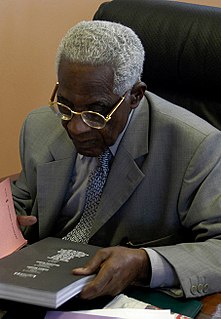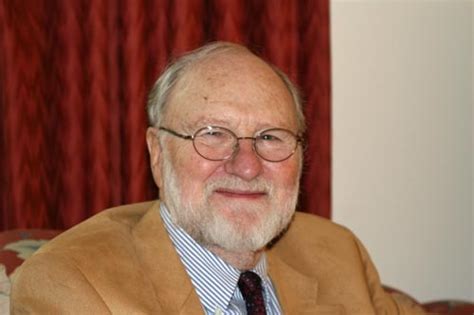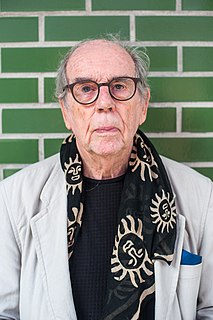A Quote by C. S. Lewis
[The decay of Logic results from an] untroubled assumption that the particular is real and the universal is not.
Quote Topics
Related Quotes
In [Aristotle's] formal logic, thought is organized in a manner very different from that of the Platonic dialogue. In this formal logic, thought is indifferent toward its objects. Whether they are mental or physical, whether they pertain to society or to nature, they become subject to the same general laws of organization, calculation, and conclusion - but they do so as fungible signs or symbols, in abstraction from their particular "substance." This general quality (quantitative quality) is the precondition of law and order - in logic as well as in society - the price of universal control.
Certainly in order to understand the natural world one needs clarity, logic, and the capacity for theory building. But that understanding tends to improve because and to the extent that it is provisional, hypothetical, when it looks for disconfirmation in the particular rather than final proof as a universal.
It is difficult to remove by logic an idea not placed there by logic in the first place. By nature, we are emotional creatures. Often we live and react based on feelings, not logic. Feelings are wonderful, but when we become tied to a particular thought or belief we tend to ignore the fact that change might be necessary.
Logic, too, also rests on assumptions that do not correspond to anything in the real world, e.g., on the assumption that there areequal things, that the same thing is identical at different points in time: but this science arose as a result of the opposite belief (that such things actually exist in the real world). And it is the same with mathematics, which would certainly never have arisen if it had been understood from the beginning that there is no such thing in nature as a perfectly straight line, a true circle, and absolute measure.
Man must have results, real results, in his inner and outer life. I do not mean the results which modern people strive after in their attempts at self-development. These are not results, but only rearrangements of psychic material, a process the Buddhists call 'samsara' and which our Holy Bible calls 'dust'.
There was an assumption that aerial bombing of civilians in World War II would cause fragile, working-class people to basically have nervous breakdowns and it would paralyze the state. That was the logic of aerial bombing. In fact, it doesn't happen at all, but the logic behind aerial bombing has never stopped, even though it never demoralizes, terrorizes, or paralyzes a population.
I started realizing that one of the great things about opera is that if you make the right kind of story, you can still have this kind of abstract subliminal quality to take you on a journey, but you can root it just enough in a particular situation, a particular kind of real situation that a person might have, or a particular context in the real world.
If the world is an aggregate of relatively independent regions, then any assumption of universal laws is false and a demand for universal norms tyrannical: only brute force (or seductive deception) can then bend the different moralities so that they fit the prescriptions of a single ethical system. And indeed, the idea of universal laws of nature and society arose in connection with a life-and-death battle: the battle that gave Zeus the power over the Titans and all other gods and thus turned his laws into the laws of the universe.
If one starts with the assumption that, in the absence of specific Congressional authority, a fixed rule of law precludes contracting officers from providing in a Government contract terms reasonably calculated to assure its performance even though there be no money loss through a particular default, there is no problem. But answers are not obtained by putting the wrong question, and thereby begging the real one.





































